FIVE-STAR TEAM WARRANTY &
SAME-DAY SERVICE
Best Tankless Water Heater
Three weeks ago, my neighbor called me at midnight because her tank water heater died spectacularly—water everywhere, basement flooded, and no hot water for the morning rush. Tank heaters pick the absolute worst times to fail, usually holidays or when you’re hosting guests. She’d been putting off replacement for months, and now she’s paying emergency installation rates.
Don’t be like my neighbor. If your tank is approaching ten years old, start researching replacements before you’re standing in cold water wondering what went wrong. Finding the best tankless water heater takes time and understanding what actually works versus what marketing departments claim works.
I’ve installed tankless water heater systems for fifteen years, watching the technology evolve from temperamental early models to today’s reliable units. Electric tankless water heater models excel in specific situations, while tankless gas water heater systems dominate others. The trick is matching the right technology to your actual needs, not what some salesperson thinks you should buy.
Here’s what most people don’t understand: there’s no universally “best” unit. A tankless hot water heater that works perfectly for a retired couple will frustrate a family with teenage athletes who shower twice daily. Your house, your family’s habits, and your budget determine what works, not online reviews from people with completely different situations.
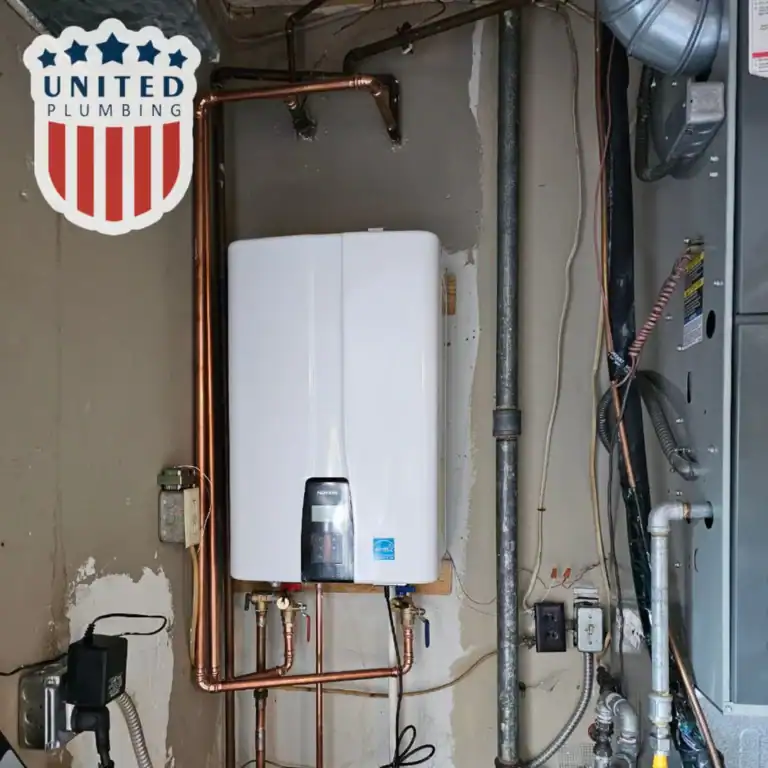
What Is the Best Tankless Water Heater for Home Use?
Determining what is the best tankless water heater starts with honest assessment of your household’s hot water usage patterns. Most people guess wildly at their needs, then wonder why their new system doesn’t meet expectations.
Small households often waste money buying oversized units because bigger sounds better. A studio apartment doesn’t need the same capacity as a five-bedroom house with multiple teenagers. Compact electric units handle modest demands perfectly while costing thousands less than whole-house gas systems.
Large families need serious capacity, especially during morning rush periods when everyone showers before school and work. Gas units deliver higher flow rates consistently, handling multiple bathrooms plus appliances without temperature drops that make people unhappy.
Climate affects sizing more than most realize. Northern homes deal with incoming water temperatures around 40°F in winter, requiring substantial heating capacity to reach comfortable shower temperatures. Southern properties with 70°F ground water need much less capacity for identical household sizes.
Your existing utilities often dictate fuel choice regardless of personal preferences. Homes with robust electrical service but no gas access make electric the logical choice. Properties with adequate gas service and proper venting locations favor gas installations. Fighting your infrastructure usually costs more than working with what you have.
Budget reality extends beyond sticker prices. Basic electric units start around $700, while premium gas models exceed $2,000. Installation costs vary dramatically—electric installations often run $1,000-2,000, while gas systems frequently require $3,000-5,000 for venting, gas lines, and electrical work.
Local utility rates determine long-term operating costs more than efficiency ratings. Some regions offer cheap natural gas and expensive electricity, making gas units economical despite higher installation costs. Other areas have the opposite situation, favoring electric units despite lower efficiency ratings.
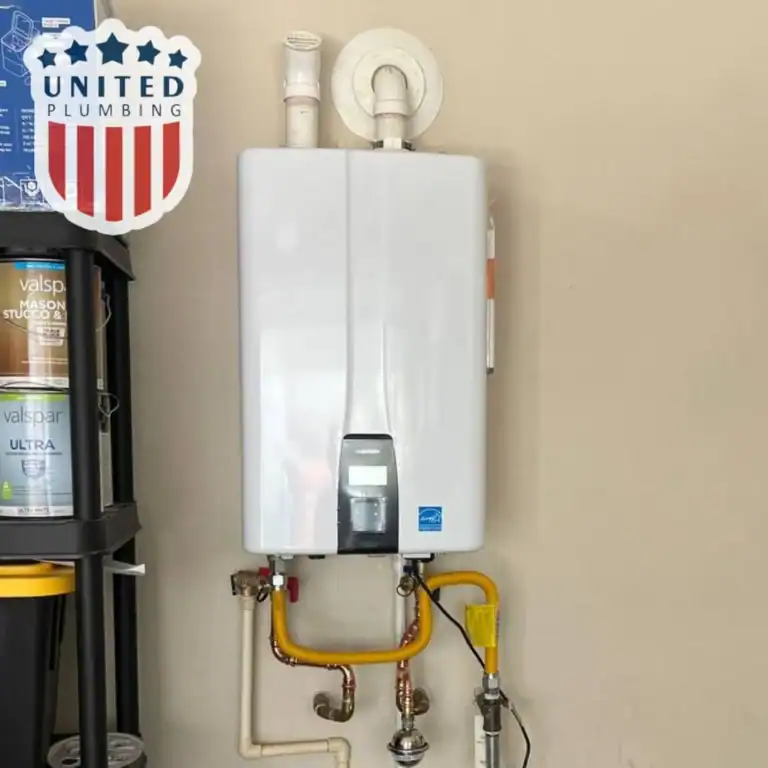
Comparing Electric vs. Gas Tankless Water Heaters
Electric and gas systems operate completely differently, each excelling in specific applications while struggling in others.
Pros and Cons of Electric Tankless Water Heaters
Electric units win on installation simplicity and maintenance requirements. No gas lines, no venting systems, no annual safety inspections—just water connections and electrical circuits. Most qualified electricians can install these without specialized training or expensive permits.
Installation costs stay reasonable because you’re not running gas lines or installing complex venting systems. Simple installations often complete in half a day instead of multiple days required for gas setups.
Maintenance stays minimal throughout the unit’s lifetime. No combustion means no carbon buildup, no gas safety concerns, no annual tune-ups requiring professional service. When problems occur, they’re usually electrical issues that are obvious and fixable.
Safety concerns disappear with electric systems. No gas leaks, no carbon monoxide risks, no combustion air requirements. These units operate safely in tight spaces where gas systems wouldn’t be appropriate.
However, performance limitations disappoint many homeowners expecting gas-like capacity. The best electric tankless water heater typically delivers 4-5 gallons per minute under real conditions. Adequate for single showers, but struggles when multiple fixtures demand hot water simultaneously.
Electrical requirements can be substantial and expensive. High-capacity units often require 150-200 amp electrical service with multiple 240-volt circuits. Older homes frequently need electrical panel upgrades costing $3,000-6,000, potentially doubling total project expenses.
Operating costs vary wildly by geographic location and local utility rates. Areas with expensive electricity make electric units costly to operate despite impressive efficiency ratings. Regions with reasonable electrical rates favor electric units over gas alternatives.
Flow rate restrictions become problematic for larger households with multiple bathrooms. Two people showering simultaneously often experience temperature fluctuations or reduced pressure as the unit struggles to meet peak demand periods.
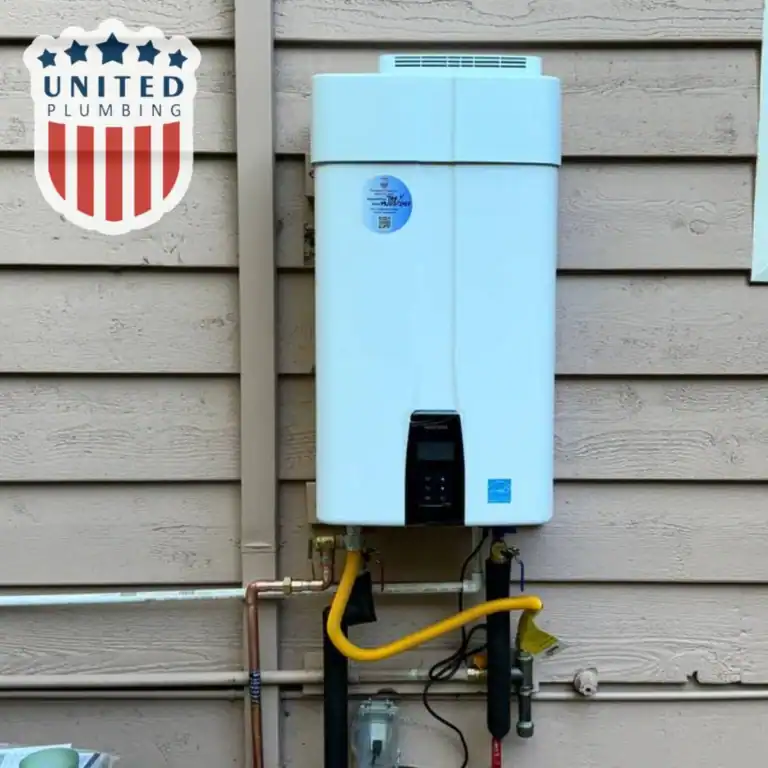
Pros and Cons of Gas and Propane Tankless Water Heaters
Gas systems deliver superior performance for high-demand applications, consistently outperforming electric alternatives in whole-house installations. Quality gas units provide 8-12 gallons per minute continuously, handling multiple bathrooms plus appliances without temperature variations.
Operating costs generally favor gas systems in most American markets where natural gas remains relatively inexpensive compared to electricity. Large families often save $300-600 annually compared to electric units, justifying higher installation costs within 3-5 years of operation.
Power outage reliability gives gas systems advantages in storm-prone regions. Most gas units operate without electricity, ensuring hot water availability during grid failures when electric systems become completely useless.
Performance consistency distinguishes gas units during peak demand periods. Unlike electric systems that struggle with multiple simultaneous demands, properly sized gas units maintain steady temperatures and adequate pressure regardless of usage patterns.
Installation complexity significantly increases costs and limits installation locations. Gas lines, venting requirements, and combustion air provisions require specialized knowledge and expensive materials. Not every room can accommodate proper venting clearances.
Maintenance needs are higher because combustion creates byproducts requiring periodic cleaning and professional inspection. Annual service typically costs $200-400, though many manufacturers require professional maintenance to preserve warranty coverage.
Safety considerations include gas leak risks, carbon monoxide concerns, and proper venting requirements. While modern units include extensive safety features, these hazards don’t exist with electric systems. Improper installation or maintenance can create dangerous situations.
The best propane tankless water heater delivers performance similar to natural gas units but with significantly higher fuel costs. Propane typically costs 2-3 times more per BTU than natural gas, making monthly operating expenses substantially higher for equivalent usage.
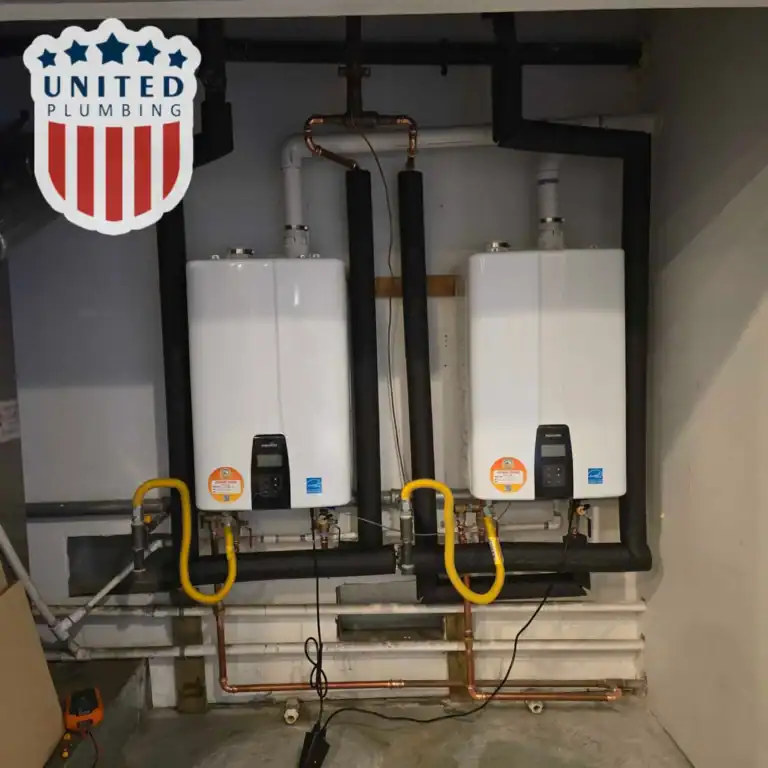
Top Features to Look for in the Best Tankless Water Heater
Do not give in to marketing publicity; concentrate on features that genuinely affect its day-to-day working and long-term reliability when used in real settings. It should contain high flow rates, consistent temperature maintenance, energy efficiency, a compact size, and durable components that will readily work for years with minimal depreciation and whose use will also help in lowering utility costs for you.
Flow Rate and Temperature Control
First, flow rate capacity is the ultimate factor that decides whether the system meets household demands during peak usage periods. Advertised flow rates are under ideal laboratory conditions that rarely exist in actual installations. In other words, shrink those flow rates by 20-30% for practical expectations.
Temperature-rise calculations define your adequate capacity, as determined by your climate and usage necessities. The run-of-the-mill water heater has to take in water at ground temperature and raise it to the output temperature; in colder areas, a pretty large capacity is required since the incoming water temperature drops a lot through the winter months.
Modulating technology adjusts the heating output automatically to match actual demand; hence, this technology makes your system more efficient while maintaining the set temperature. Basic units work at full capacity whether needed or not, wasting energy during light usage and sometimes overheating during low-flow conditions.
Digital temperature controls precisely set and compensate for output temperatures against variable water pressure and flow rates, while mechanical controls tend to drift and can hardly maintain stable temperature under variable demand conditions.
Energy Efficiency and Certifications
Energy Factor ratings give a way of comparing standardized efficiency between different models and fuel bodies, with testing methods differing between electric and gas. Higher rating levels mean good efficiency and low costs of operating over the life of the system.
ENERGY STAR certification identifies models that meet strict standards of efficiency set forth by a federal agency. Certified units usually qualify for the utility rebates and tax incentives, reducing net purchase costs for aid levels of $500-1,500, varying among local programs.
Condensing technology used in gas units traps extra heat from exhaust gases, increasing efficiency rating and decreasing longer-term operating cost. These condensing units cost quite a lot more initially and still sometimes prove to be the best value for heavy usage.
The smart control and connectivity features bring on complications in almost all cases with the capability for remote monitoring and adjustment-a capability rarely needed in most residential applications. Basic reliability should be the goal; features that could complicate servicing are better avoided.
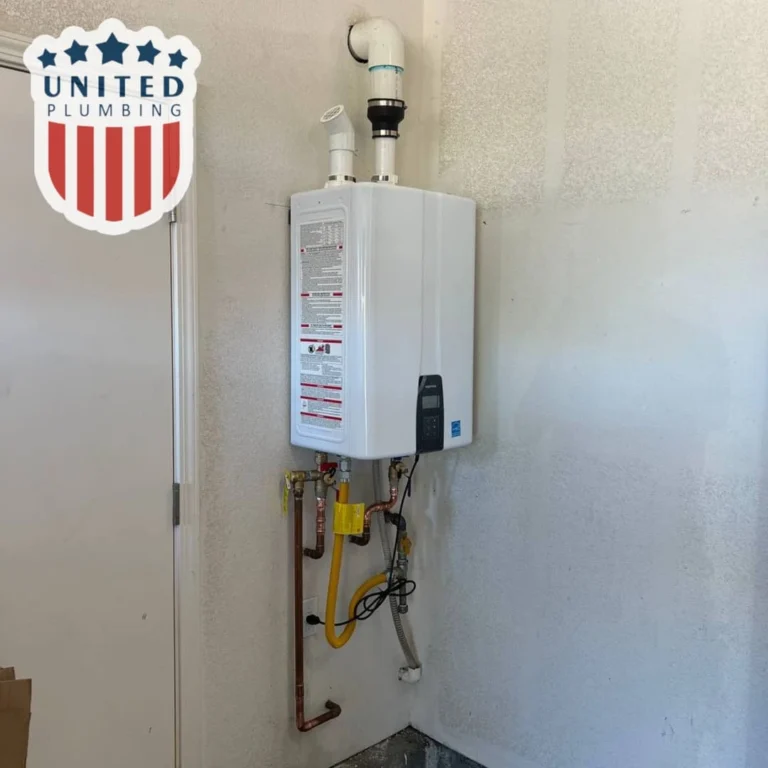
Maintenance and Lifespan
Descaling needs can really depend on how hard the water is where you live and the design of your unit. If you’re in an area with hard water, you might need to descale every 6 to 12 months to keep mineral buildup from affecting how well your equipment works and to help it last longer.
How easy it is to access service also plays a big role in long-term maintenance costs and how quickly a technician can do their job. Models that have easy-to-reach parts and simple service steps can save you money on maintenance as time goes on.
Warranty coverage shows how much confidence the manufacturer has in their product and helps protect you from early failures. The best tankless hot water heaters usually come with solid warranties that cover important parts like heat exchangers and electronics for about 10 to 15 years.
Best Tankless Water Heater Brands of 2025
Many manufacturers make dependable equipment and back it up with good customer support and easy access to parts. Top brands like Rinnai, Noritz, Stiebel Eltron, and Rheem have great tech, save energy, and are built to last. When picking a brand, think about their warranty, how many service centers they have, and their reputation for quality in homes and businesses.
Best Electric Tankless Water Heaters
Stiebel Eltron makes high-quality electric units known for their German engineering and solid build, which explains their higher prices. Their Tempra Plus series consistently delivers good performance with accurate temperature control and compact designs that fit in various spaces.
EcoSmart provides more affordable options that perform decently for budget-minded buyers. Their ECO series offers basic features and works well for lighter uses or temporary setups where keeping costs down is key.
Rheem’s RTEX series strikes a balance between price and performance, making them great for regular home use. These units come with digital temperature controls and enough flow rates to meet most household needs.
Bosch focuses on reliability and space-saving designs. Their electric models are great for instant hot water in smaller setups, prioritizing quick delivery over bigger capacities.
Best Gas and Propane Tankless Water Heaters
Rinnai is a top player in the home gas market thanks to its solid engineering, reliability, and great dealer support. Their RU series stands out for its top flow rates, temperature control, and long-lasting quality.
Noritz focuses on making tough, commercial-grade units that also work well for homes, putting durability and performance first. Their NRC series uses condensing technology with strong construction for heavy use.
Rheem’s Prestige series gives good value with high flow rates and energy efficiency, perfect for whole-house needs. These units offer reliable performance at reasonable prices and come with decent warranties.
Takagi is known for its compact units that fit in tight spaces without losing performance. Their T-K series can be installed outside and works well even in cold weather.
Best Tankless Water Heater for RV and Compact Homes
Recreational vehicles and tiny homes need special equipment for their unique setups and traveling use.
Girard makes tankless water heaters that are perfect for RVs. They have 12-volt ignition systems and small designs that fit into standard RV compartments. With propane, you don’t have to rely on electrical hookups, and they’re efficient too.
The Precision Temp RV series is known for being reliable and working well in cold weather, which is great for people living on the move year-round. These heaters have solid freeze protection and are built tough for the challenges of mobile life.
Eccotemp offers portable units that are great for camping and temporary outdoor use. They aren’t meant for permanent setups, but they work well in emergencies and for fun activities. Plus, they’re lightweight, affordable, and easy to put together.
How to Choose the Right Tankless Water Heater for Your Needs
To pick the right system for your home, take a good look at what you need, the setup you have now, and your long-term plans.
Start by figuring out your peak hot water needs. Think about when everyone in the house is using hot water the most, like during the morning when people are showering and running appliances at the same time.
Also, keep in mind how the climate affects the system’s needs. If you live in a colder area where the groundwater is less than 50°F, you’ll need a system that can heat water better than in warmer places.
Finally, check out your current utility setup. If you’re going with electric, make sure you have enough electrical service. For gas systems, ensure you have the right gas pressure and clear venting.
Check the total ownership cost by adding up the purchase price, installation fees, running costs, and maintenance over the expected 15-20 years of the equipment’s life. Gas systems usually need a bigger upfront cost but can save you money on operating costs.
Look into any rebates or incentives from utilities, manufacturers, and government programs. These can really help lower your net costs and promote high-efficiency equipment.
If picking a system feels too much, United HVAC, Plumbing & Electrical can help you out. They offer expert advice to help homeowners find the right equipment for their needs and budget.
Conclusion
Choosing the right tankless water heater means looking at what you need in terms of performance, efficiency, and what fits in your home. If you have a smaller place or no gas service, electric models are a good choice. For larger households, gas systems work better.
Brands like Rinnai, Stiebel Eltron, Noritz, and Rheem are known for their reliability, but it’s important to get the right size and have them installed by a pro. Good equipment will last for years if you keep it maintained.
Having a professional install your heater helps with making sure it works properly, meets safety standards, and keeps your warranty intact. Bad installation can lead to issues even with the best equipment.
Ready for endless hot water? Get in touch with United HVAC, Plumbing & Electrical. Their team can help you pick the right tankless water heater and make sure it’s installed correctly for long-lasting performance.
Post views: 991
FAQ
What is the best tankless water heater for a family of four?
Gas units with a capacity of 6-8 GPM are usually good for families of four, based on average usage. A model like the Rinnai RU199iN can supply enough hot water for several taps running at once without a noticeable drop in temperature during busy times.
Are electric tankless water heaters better than gas?
Electric heaters are easy to install and don’t need much upkeep, but they work best for smaller spaces since their flow rates are limited. Gas systems, on the other hand, are great for heating an entire house but can be tricky to install and usually need a pro to keep them in shape. Pick one that fits your current setup and what you really need.
How do I maintain a tankless water heater?
Cleaning the equipment every year helps get rid of minerals that can make it less efficient and shorten its life. If you have a gas unit, you’ll also need to clean the combustion chamber and check the safety system. Getting a professional to handle maintenance keeps you covered by the warranty and helps your equipment run well for a long time.
Do tankless systems qualify for energy rebates?
A lot of utility companies give good rebates for high-efficiency tankless water heaters, and if you pick ENERGY STAR certified models, you might also get federal tax credits. The rebate amounts depend on where you live and how efficient the model is, but you could save anywhere from $500 to $1,500 or even more.
Latest posts
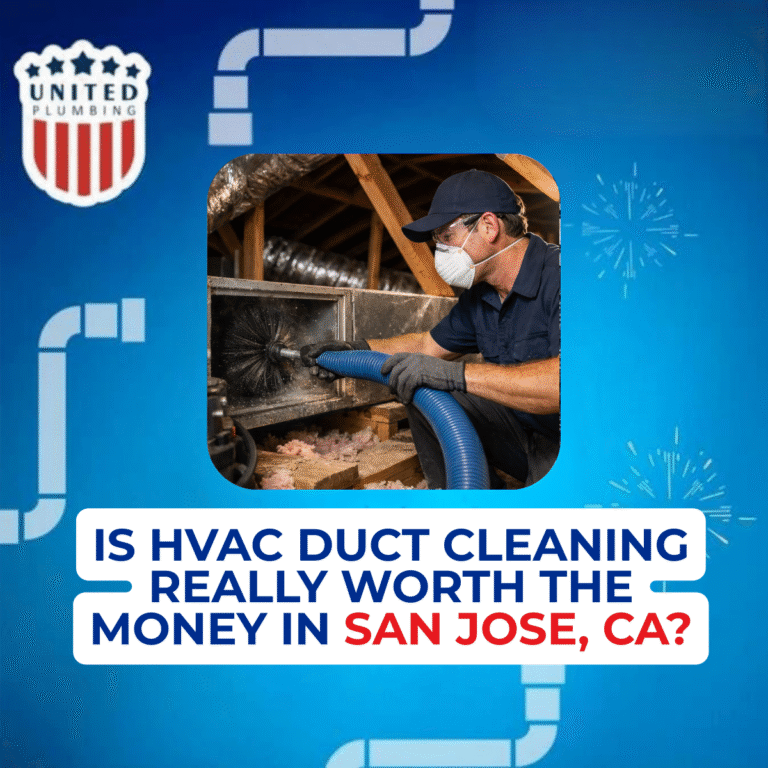
Is HVAC Duct Cleaning Really Worth the Money in San Jose, CA?
Many homeowners in San Jose question whether HVAC duct cleaning is a necessary service or an unnecessary expense....
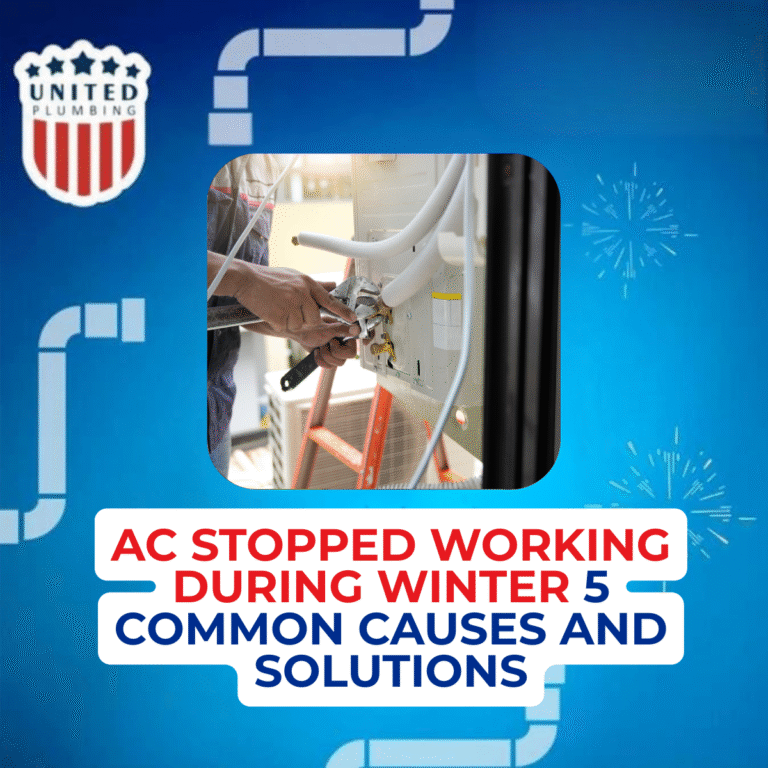
AC Stopped Working During Winter 5 Common Causes and Solutions
If you ended up on this blog, your AC stopped working during winter, or you are trying to learn more about HVAC....


If you still have questions or need advice, please leave a request and we will contact you as soon as possible
Need a plumber and got no clue where to start?
(408) 539-6936Facing a plumbing issue? Get a FREE in-person estimate and quick solutions from our skilled technicians, ensuring your home runs smoothly again!
